ANA Profile 18: "AutoQ"
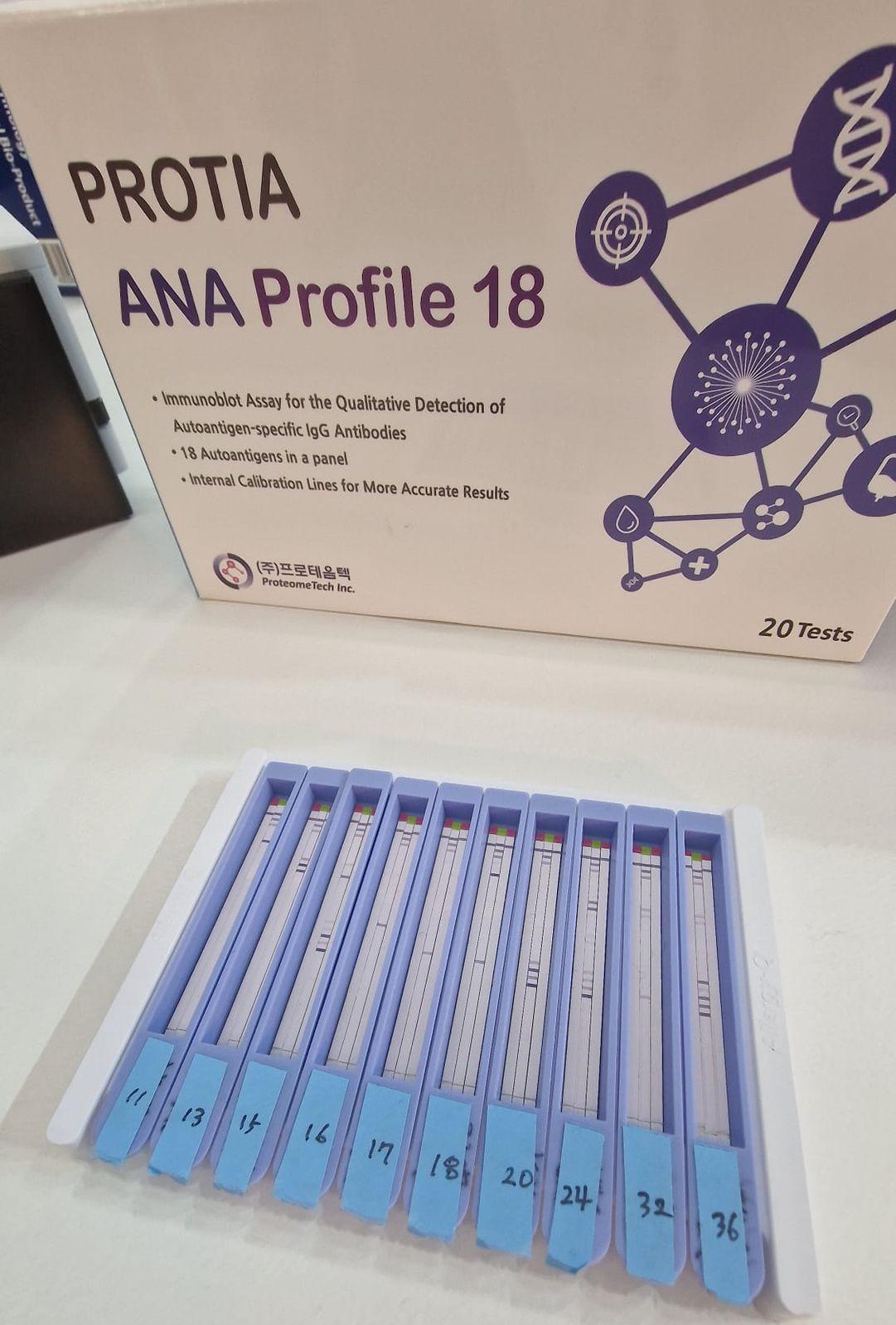
Discover "AutoQ," the ANA Profile 18—an innovative in vitro diagnostic test utilizing enzyme-linked immunosorbent assay (ELISA) for the qualitative determination of autoantigen-specific IgG concentrations. Delve into a comprehensive analysis, identifying 18 types of substances associated with autoimmune diseases in one streamlined process. AutoQ empowers healthcare professionals with insights into autoimmune conditions, paving the way for informed diagnostics and proactive healthcare management. Elevate your autoimmune profiling with AutoQ, where precision and technology converge for comprehensive health assessment.
AutoQ by PROTIA ANA Profile 18: Navigating Autoimmune Insights with Precision
Embark on a transformative journey into autoimmune diagnostics with AutoQ, a pivotal component of the PROTIA ANA Profile 18. More than a test, AutoQ represents a groundbreaking approach to understanding autoimmune conditions, utilizing enzyme-linked immunosorbent assay (ELISA) for the qualitative determination of autoantigen-specific IgG concentrations in human serum or plasma.
Key Features:

1. Comprehensive Autoimmune Profiling: AutoQ, as part of the PROTIA ANA Profile 18, stands as a beacon of comprehensive autoimmune profiling. With the use of ELISA technology, this diagnostic test goes beyond routine assessments, offering qualitative insights into 18 autoantigen-specific substances in one streamlined process.
2. ELISA Technology Excellence: The utilization of enzyme-linked immunosorbent assay (ELISA) technology is at the heart of AutoQ's precision. This advanced method ensures not only accuracy but also reliability in the determination of autoantigen-specific IgG concentrations, providing healthcare professionals and individuals with trustworthy insights into autoimmune conditions.
3. Informed Diagnostics for 18 Autoantigens: AutoQ elevates autoimmune diagnostics by unraveling information related to 18 autoantigens. This depth of analysis offers healthcare professionals a holistic view, empowering them to make informed diagnostic decisions and facilitating proactive healthcare management.
4. Seamless Integration: In one efficient process, AutoQ seamlessly integrates into autoimmune diagnostics. The streamlined nature of the test ensures that individuals and healthcare professionals alike can access detailed insights without unnecessary complexity, facilitating a smoother and more efficient diagnostic experience.
5. Empowering Proactive Healthcare Management: Beyond diagnostics, AutoQ empowers proactive healthcare management. Armed with qualitative insights into 18 autoantigen-specific substances, healthcare professionals can implement targeted interventions and treatments, fostering a proactive approach to autoimmune conditions.
AutoQ by PROTIA ANA Profile 18 is not just a diagnostic tool; it's a transformative journey into autoimmune insights. Join us in embracing a future where precision meets innovation, redefining our approach to autoimmune diagnostics and proactive healthcare management. Welcome to a new era guided by the depth and accuracy of AutoQ.
PROTIA ANA Profile 18: Unveiling Autoimmune Dynamics with Qualitative Precision
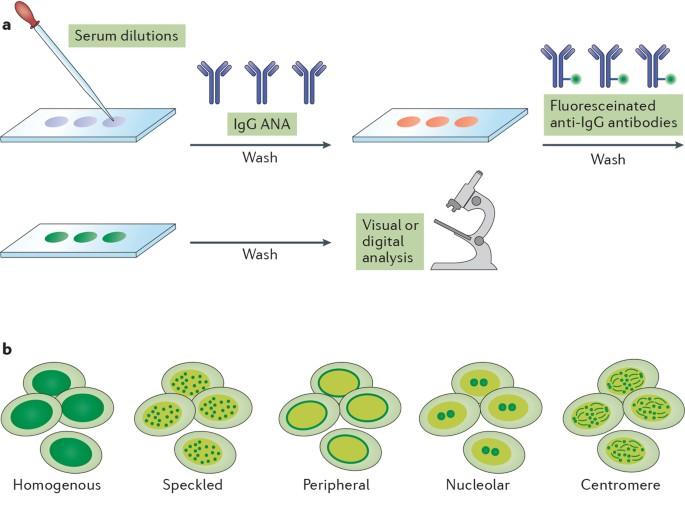
Embark on a journey into the intricate realm of autoimmune diagnostics with PROTIA ANA Profile 18. This advanced in vitro diagnostic test employs the sophisticated enzyme-linked immunosorbent assay (ELISA) to qualitatively determine autoantigen-specific IgG concentrations in human serum or plasma.
Precision in Autoimmune Understanding:
PROTIA ANA Profile 18 stands as a beacon of precision in unraveling the complexities of autoimmune conditions. The qualitative determination of autoantigen-specific IgG concentrations allows for a nuanced understanding without compromise.
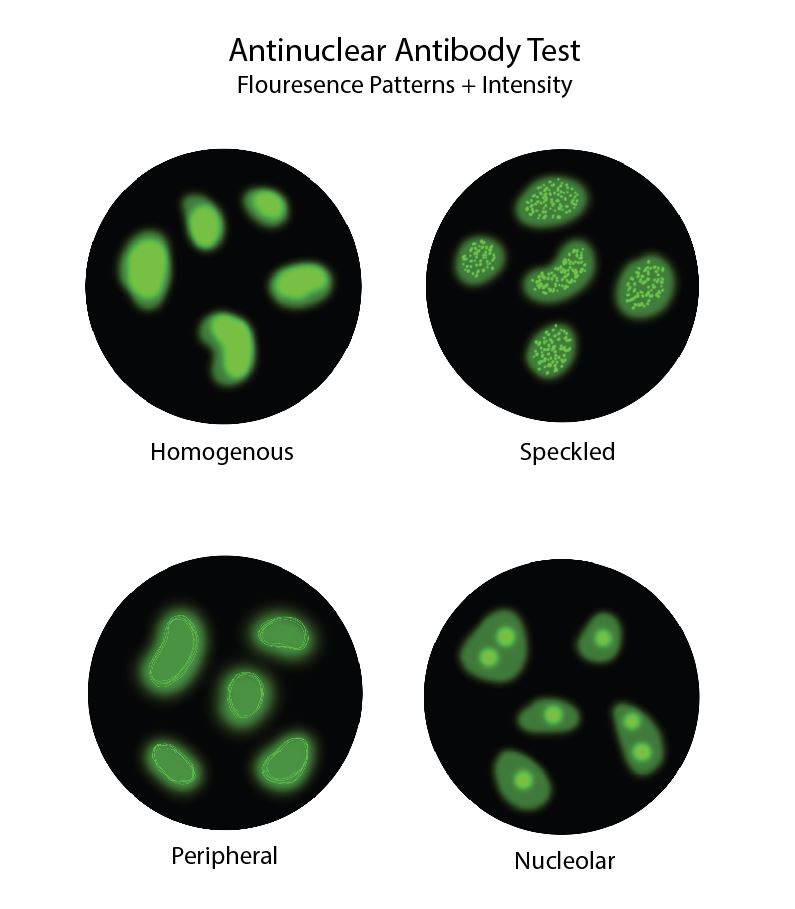
ELISA Technology:
At the heart of PROTIA ANA Profile 18 lies the cutting-edge ELISA technology. This method ensures the reliability and accuracy necessary for a comprehensive analysis of autoimmune dynamics, providing healthcare professionals and individuals with trustworthy insights.
Holistic Insights in One Process:
This isn't just a diagnostic test; it's a comprehensive exploration into autoimmune dynamics. In one seamless process, PROTIA ANA Profile 18 qualitatively analyzes a spectrum of autoantigen-specific substances, empowering healthcare professionals and individuals with holistic insights into autoimmune diseases.
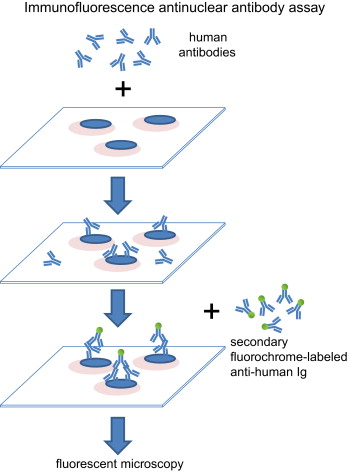
Simplified Diagnostics:
The streamlined nature of PROTIA ANA Profile 18 simplifies the diagnostic experience. Without unnecessary complexity, this diagnostic tool provides accessibility to detailed insights, offering a clearer understanding of autoimmune conditions for healthcare professionals and individuals alike.
Empowering Proactive Healthcare:
Beyond diagnostics, PROTIA ANA Profile 18 becomes a catalyst for proactive healthcare management. Armed with qualitative insights, healthcare professionals can implement timely and targeted interventions, fostering a proactive approach to autoimmune diseases and enhancing personalized patient care.
PROTIA ANA Profile 18 is not merely a test; it's an exploration into autoimmune dynamics where qualitative precision meets innovation. Join us on this journey towards a future where autoimmune diagnostics redefine our understanding of health, promoting proactive management and personalized well-being. Welcome to a new era guided by the depth and accuracy of PROTIA ANA Profile 18.
Decoding Autoimmunity: The Significance of ANA Testing
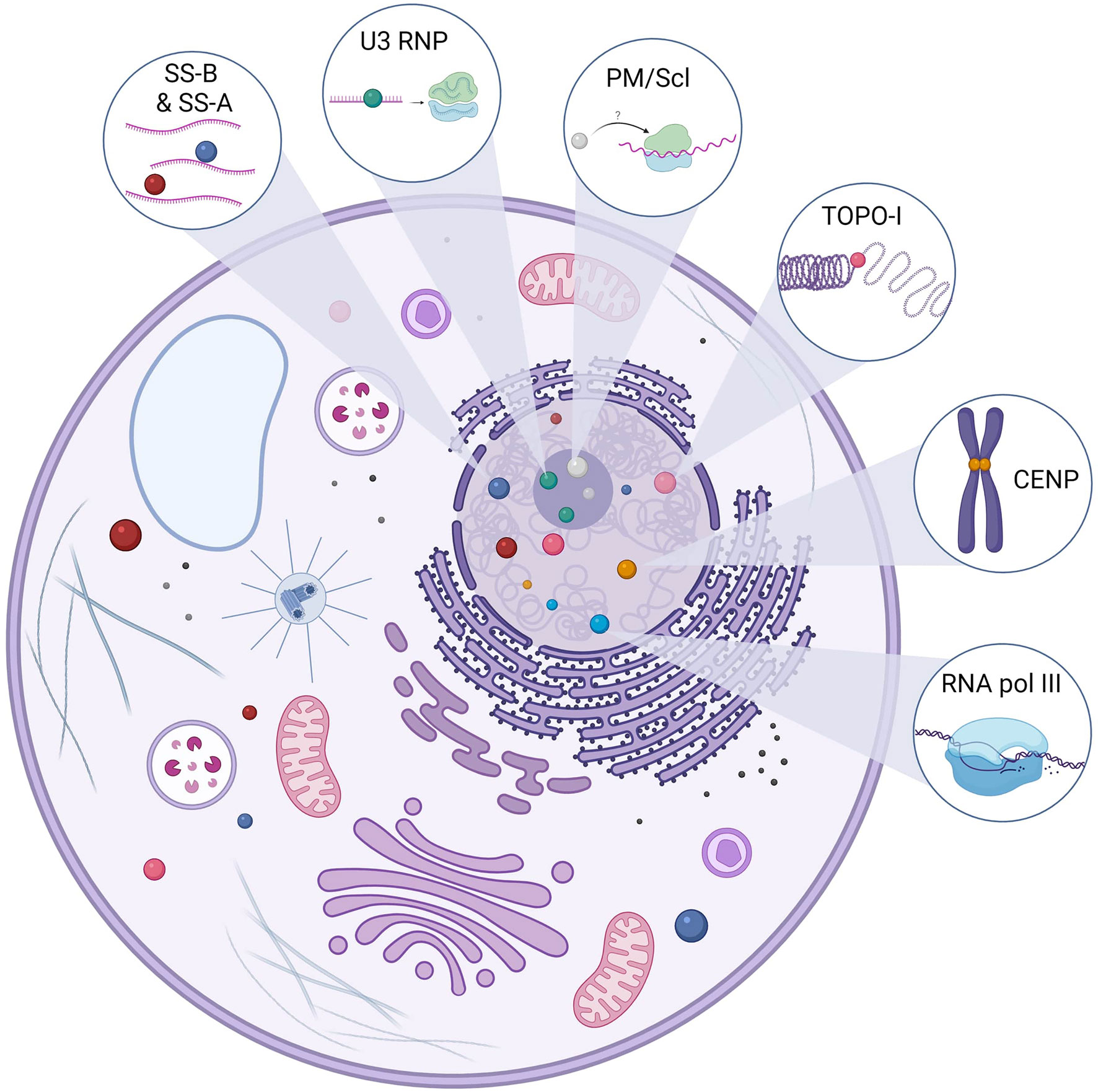
In the intricate realm of autoimmune diagnostics, the acronym ANA holds a key role, standing for Antinuclear Antibody. ANA testing is a valuable tool in the field of rheumatology, aiding in the identification and understanding of autoimmune disorders.
Understanding ANA:
Antinuclear Antibodies are autoantibodies that target components within the cell nucleus. These antibodies play a pivotal role in the body's immune response, but when present in elevated levels, they can be indicative of an autoimmune process.
ANA Testing in Diagnosis:
The ANA test involves analyzing blood samples to detect the presence of these antibodies. Elevated levels of ANAs suggest that the immune system may be mistakenly targeting its own cells, potentially leading to various autoimmune conditions.
Indications of Autoimmune Diseases:
While a positive ANA test is a crucial marker, it does not provide a specific diagnosis. Instead, it serves as an indicator that further investigation is needed. Elevated ANA levels are associated with a range of autoimmune diseases, including lupus, rheumatoid arthritis, and Sjögren's syndrome, among others.
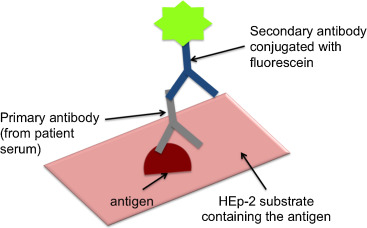
Comprehensive Assessment:
The journey from a positive ANA test to a confirmed diagnosis involves a comprehensive clinical and laboratory assessment. Healthcare professionals use a combination of medical history, physical examinations, and additional specialized tests to determine the specific autoimmune condition affecting an individual.
Holistic Patient Care:
Understanding ANA results is not just about diagnosing a condition; it's about providing holistic patient care. Each individual's immune system is unique, and ANA testing is a crucial step in unraveling the complexities of autoimmune dynamics. It enables healthcare professionals to tailor treatment plans that address the specific needs and challenges of each patient.
In the world of autoimmune diagnostics, ANA testing stands as a gateway to uncovering the mysteries of autoimmunity. It serves as a starting point, guiding healthcare professionals towards a deeper understanding of the immune system's intricacies and paving the way for personalized, patient-centric care.
Conclusion:
Navigating Autoimmune Realms with ANA Testing
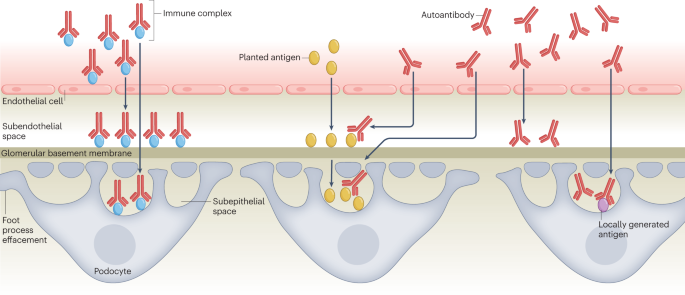
In the intricate landscape of autoimmune diagnostics, ANA testing emerges as a compass, guiding healthcare professionals through the complexities of the immune system. Antinuclear Antibodies (ANA) play a pivotal role in this journey, offering insights that go beyond a mere positive or negative result.
ANA testing is not a definitive diagnosis but a crucial indicator, prompting further exploration into the realms of autoimmune diseases. Elevated levels of ANAs signal the immune system's potential misdirection, inviting healthcare professionals to delve deeper into an individual's health story.
Understanding the significance of ANA testing is recognizing that each elevated result is a unique chapter in the patient's narrative. It is a starting point that opens doors to comprehensive assessments, specialized tests, and personalized care plans. The transition from ANA testing to diagnosis is a holistic process, embracing the intricacies of the immune system and tailoring interventions to meet the unique needs of each patient.
Beyond the laboratory results, ANA testing signifies a commitment to unraveling autoimmune dynamics, offering a lens through which healthcare professionals can decode the language of the immune system. It is a tool that enables a deeper understanding of conditions such as lupus, rheumatoid arthritis, and Sjögren's syndrome, among others.
As we navigate autoimmune realms, ANA testing stands as a beacon of discovery, a pathway to holistic patient care, and a testament to the ongoing quest for a more profound understanding of autoimmune diseases. Welcome to a future where ANA testing is not just a diagnostic tool but a key that unlocks the door to personalized healthcare, where the immune system's complexities are met with knowledge, compassion, and a commitment to improving lives.
Sjögren's syndrome is a chronic autoimmune disorder characterized by the inflammation and dysfunction of the glands that produce moisture, such as the salivary and lacrimal glands. The condition primarily affects the mucous membranes and commonly leads to symptoms of dry eyes and dry mouth. In Sjögren's syndrome, the immune system mistakenly attacks the glands that produce tears and saliva, resulting in reduced production of these fluids. This autoimmune response can also affect other parts of the body, leading to a variety of symptoms and complications, ranging from fatigue and joint pain to the involvement of internal organs. The syndrome can occur as a primary condition (primary Sjögren's syndrome) or secondary to other autoimmune disorders such as rheumatoid arthritis or lupus. Diagnosing Sjögren's syndrome typically involves a combination of clinical evaluation, blood tests, and specialized imaging studies. Management of Sjögren's syndrome focuses on relieving symptoms, which may include the use of artificial tears for dry eyes, medications to stimulate saliva production for dry mouth, and addressing systemic symptoms with immunosuppressive drugs. While there is no cure for Sjögren's syndrome, treatment aims to improve the quality of life for individuals affected by the condition.